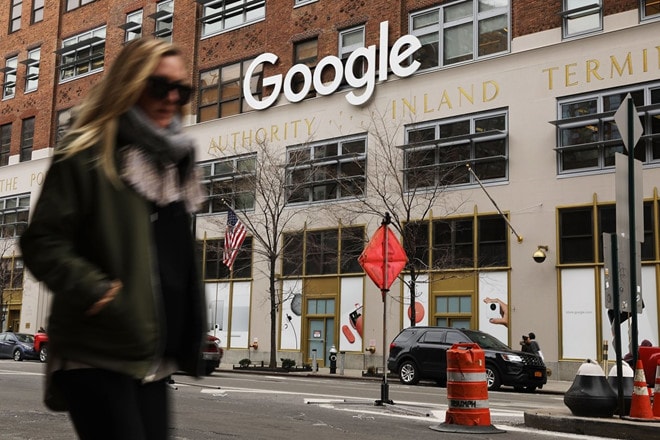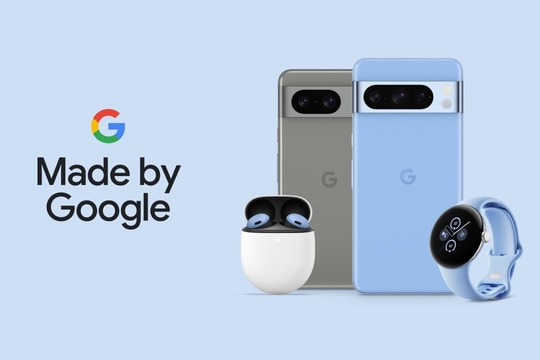Google is better at spying on users than Facebook
Google, not Facebook, is the company that stores the most user information. So why hasn't anyone talked about it?
The Cambridge Analytica scandal has sounded the alarm about how Facebook users' information is illegally collected.
However, in terms of collecting user data, Facebook is nothing compared to Google. It is Google that is the "shark" on the internet today, according toWall Street Journal.
Users do not know that every keyword they type into Google search, the time they log into Gmail or any other Google service is meticulously recorded to build a complete picture of them.
|
| Google is the company that collects the most user data. Photo:GettyImages. |
According to Chandler Givens, director of TrackOff, a company that develops software to prevent identity theft, Google has quietly deployed many secret technologies to collect user information, just like Facebook has done.
Google knows about its users even if they don't use services like Gmail or its search engine.
Google Analytics is currently the most trusted analytics platform. Half of the largest US companies are Google Analytics customers. About 50 million websites worldwide use this service.
Google Analytics can track users even when they are not logged in to the service. Not to mention the billions of people with Gmail accounts who are tracked even more closely.
In 2016, Google changed its terms of use, allowing tracking and advertising data to be merged with personally identifiable information from Google accounts.
Google has a complete grasp of information from web browsing, search history, installed apps, to age and gender charts and many other personal information.
|
| Google CEO Sundar Pichai may follow Mark Zuckerberg to testify before the US Congress. Photo:Bloomberg. |
Sundar Pichai's company says it doesn't use sensitive demographic information like race, religion, sexual orientation or health, but in reality no one has control over this.
Because Google uses cross-platform tracking, it can capture user information across all devices it uses, from computers to phones, TVs, and other connected devices.
That’s why Google and Facebook dominate online advertising today. By feeding vast amounts of personal data to the latest artificial intelligence technology, these companies can know exactly who you are, what you do, and where you are, without you even telling them.
Google collects more data through online advertising. In the US alone, the company has 4,000 data brokers who collect user information day and night.
In the mobile space, Google is also the biggest data collector across two billion active Android devices.
Android "sinner"There are 2 billion active Android devices in the world and this is truly a gold mine for Google to exploit user information. Not only that, Android is also exploited by other companies for their own purposes.
For example, Facebook was accused of secretly reading call data and text message history of Android users. Facebook cannot do this with iPhone because Apple does not allow it, while Android is too easy.
Even Google's mobile operating system collects huge amounts of user data without making it clear how that data is used and for what purpose.
|
| Android is seen as an octopus tentacle that helps Google collect user data more easily.Photo: Bloomberg. |
To appear on Google’s Android app store, developers must agree to only request the information (from users) they need. But that rule is easily circumvented.
Meanwhile, Google uses many other non-transparent methods to force users to switch to its own applications, such as Gmail or the Chrome web browser.
Android users who click on Gmail will be asked to allow the app to access the phone's camera and microphone until they agree.
Similarly, Google Maps on Android also requires users to enable location features for easier advertising.
Of course, these all require user consent, but it is difficult to determine, even for experts, the context in which the data is used.
New EU rules will require companies like Google and Facebook to be clear about their data and how it is used.
In most cases, Google is wise to push this responsibility onto its advertising partners./.






